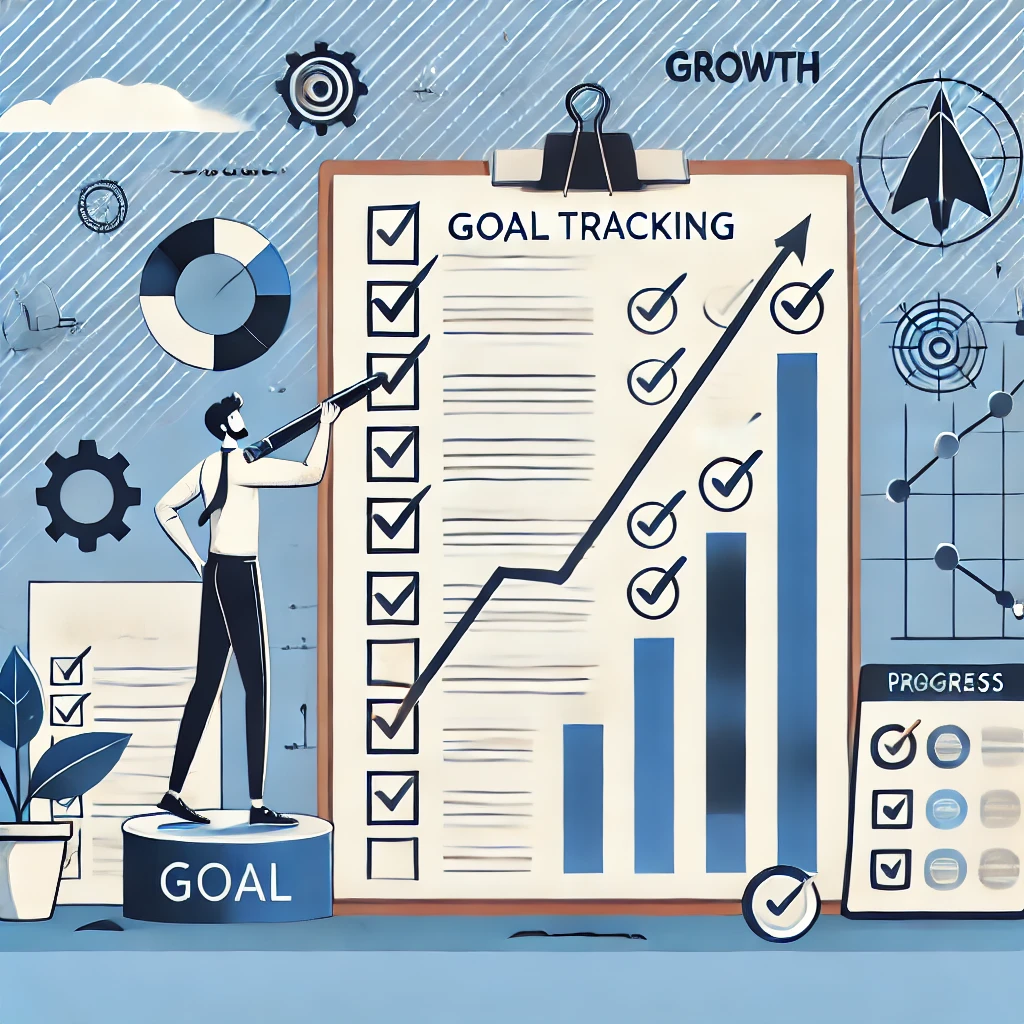Key Contents
Setting and achieving personal goals is a critical part of personal development. Goals give us a sense of direction, provide motivation, and help us grow both personally and professionally. However, many people struggle with defining their goals or sticking to them once they’re set. In this guide, we’ll break down how to set and achieve personal goals effectively so that you can take meaningful steps toward the life you desire.
1. Why Setting Personal Goals Is Important
Before diving into the process of setting goals, it’s essential to understand why they matter. Goals act as a roadmap in your journey toward personal and professional fulfillment. They help you:
- Clarify Your Vision: Goals give you a clear idea of what you want to achieve.
- Stay Focused: With a goal in mind, distractions are minimized, and you remain on course.
- Measure Progress: Achieving small milestones within your goal gives you a sense of accomplishment.
- Boost Motivation: Each step toward your goal provides motivation to keep moving forward.
Whether it’s career advancement, improving your health, or learning a new skill, goal-setting is crucial for personal growth.
2. Types of Personal Goals
Not all goals are created equal. They can be broadly categorized into several types, each targeting a different area of your life:
- Career Goals: These are objectives related to your professional growth, like earning a promotion or gaining new skills.
- Health Goals: These focus on improving your physical and mental well-being, such as losing weight or reducing stress.
- Financial Goals: Aimed at managing money more effectively, like saving for a big purchase or paying off debt.
- Personal Development Goals: These focus on self-improvement, like learning a new language or cultivating a new hobby.
- Relationship Goals: Aimed at improving your connections with family, friends, or a partner.
Knowing the type of goal you’re pursuing can help you set more targeted, effective objectives.

3. How to Set Personal Goals Using the SMART Framework
One of the most effective ways to set and achieve goals is by using the SMART goals framework. This method ensures that your goals are clear, realistic, and actionable.
- Specific: Be clear about what you want to achieve. Vague goals like “I want to get fit” are less effective than “I want to run a 5K marathon in six months.”
- Measurable: Define metrics that allow you to track your progress. For example, if your goal is to save money, specify how much you aim to save and within what timeframe.
- Achievable: Ensure your goal is realistic. Setting impossible goals only leads to frustration and giving up.
- Relevant: Your goal should align with your larger life aspirations. Ask yourself, “Why is this goal important to me?”
- Time-bound: Set a deadline for your goal. A timeline gives you a sense of urgency and helps you achieve your goals on time.
Here’s an example of a SMART goal: “I will save $5,000 for an emergency fund within the next 12 months by setting aside $417 every month.”
4. Breaking Down Big Goals into Smaller Milestones
Large, long-term goals can feel overwhelming, making it easier to procrastinate. To combat this, break your big goal into smaller, more manageable milestones. This approach helps you maintain momentum and gives you a sense of achievement along the way.
For example, if your long-term goal is to write a book, set smaller milestones like:
- Milestone 1: Write the outline by the end of the month.
- Milestone 2: Complete the first chapter within three weeks.
- Milestone 3: Finish the manuscript draft in six months.
Each milestone should be treated as its own goal, allowing you to stay focused and motivated.

5. Stay Committed: The Importance of Accountability
One of the biggest challenges people face when working toward personal goals is staying committed. Here are some tips to stay on track:
- Create a Routine: Consistency is key. Develop daily or weekly habits that bring you closer to your goal.
- Track Your Progress: Keep a journal or use an app to monitor your progress. Reviewing how far you’ve come can keep you motivated.
- Find Accountability: Share your goals with a friend or join a community of people with similar goals. Regular check-ins can keep you motivated and accountable.
6. Overcoming Obstacles and Staying Motivated
Inevitably, you will face challenges and setbacks while working toward your goals. The key to success lies in how you handle these obstacles. Here are some strategies:
- Anticipate Challenges: Identify potential obstacles ahead of time and come up with solutions. If you’re trying to exercise more but have a busy schedule, plan short but effective workouts.
- Stay Flexible: Life is unpredictable, and goals may need to be adjusted. If circumstances change, reassess your timeline or expectations without giving up on your goal entirely.
- Celebrate Small Wins: Reward yourself for achieving milestones, even the small ones. This will boost your morale and keep you motivated.
- Visualize Success: Regularly remind yourself why you set the goal in the first place. Visualization can enhance your motivation and clarify your purpose.

7. Review and Adjust Your Goals Regularly
Your goals should be dynamic, not static. As you make progress or as life changes, it’s important to review and adjust your goals. Here’s how:
- Schedule Regular Reviews: Set a time (monthly or quarterly) to evaluate your progress. Are you moving at the right pace? Do you need to adjust your timeline?
- Reassess Your Priorities: As you grow, your priorities may shift. Adjust your goals to reflect where you are in life.
- Celebrate Achievements: Once you’ve achieved a goal, take a moment to celebrate. Then, set new goals that push you further.
8. Tools to Help You Achieve Your Goals
There are many tools available to help you stay organized and track your progress toward personal goals. Here are a few options:
- Goal-setting apps like Trello, Notion, or Asana help you track tasks and milestones.
- Habit-tracking apps like Habitica or Streaks help you build and maintain new habits.
- Time-management tools like the Pomodoro Timer or Time Doctor help you stay focused and productive.
These tools can keep you accountable, provide reminders, and give you a visual representation of your progress.

Achieving Personal Goals Is a Journey
Setting and achieving personal goals is a powerful way to improve your life, but it’s not always easy. Using the SMART framework, breaking down your goals into smaller tasks, and staying accountable can increase your chances of success. Remember, achieving personal goals is not a one-time event but an ongoing process. Stay committed, adjust when necessary, and celebrate your progress along the way.
For Latest News Updates, Click Here.
